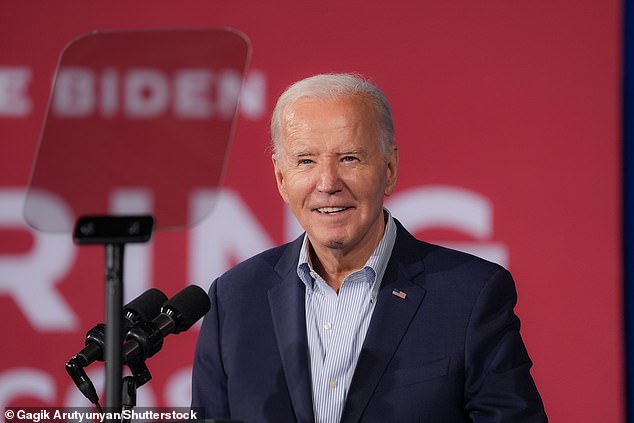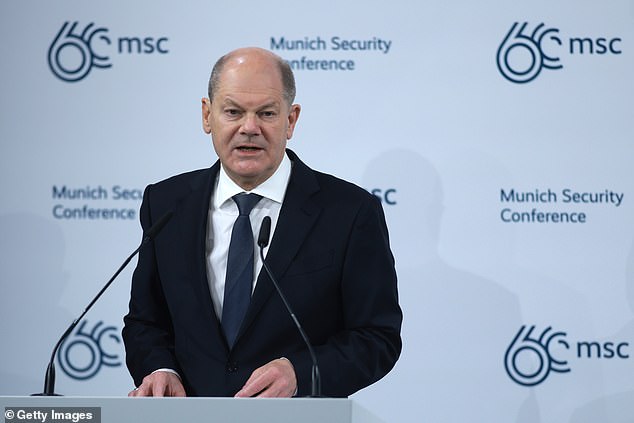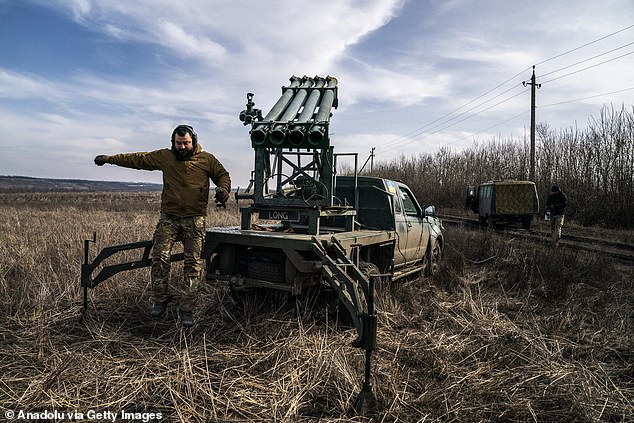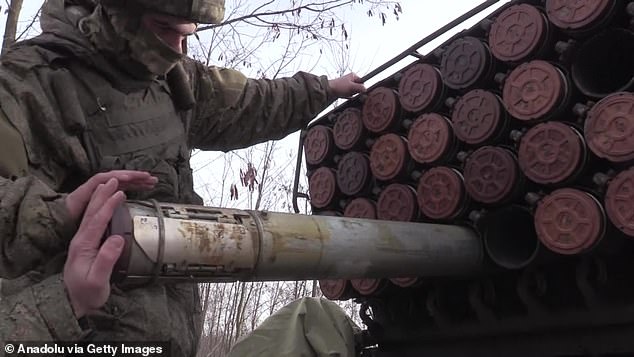The Biden administration is backing a $50 billion bond using frozen assets to give to Ukraine, with Congress not expected to vote on additional funds until April
- Ukrainian armed forces are facing a shortage of artillery and weapons in their fight
- Congress has failed to pass legislation allowing new aid to Kiev
- Now the Biden administration is considering a new strategy to find $50 billion
With Congress still at an impasse over whether to provide more aid to desperate Ukrainian forces, the Biden administration is considering increasingly complicated and resourceful ways to funnel money and weapons into efforts to fend off the Russian invasion.
The latest idea is to sell bonds to raise money for Ukraine, all backed by hundreds of millions of dollars in frozen Russian assets.
The “freedom bonds” could provide as much as $50 billion – almost as much as the stalled international security law – to help Ukraine continue its fight, while avoiding the thorny question of whether the $280 billion in frozen assets can be legally seized taken.
The proposal emerged Thursday as Russia fired more than 20 missiles at the Ukrainian capital Kiev and European leaders met to decide how best to use Russian resources.
The European Commission this week proposed taking profits from frozen assets for a fund to arm Kiev.
A Czech-made DANA 152mm self-propelled gun howitzer in eastern Ukraine. Ukraine’s armed forces face artillery shortages as Western allies struggle to finance more support

The Biden administration is considering increasingly complicated and resourceful ways to funnel money and weapons to the Ukrainian armed forces and their efforts to repel the Russian invasion
At the same time, Bloomberg reported that US officials are suggesting an alternative plan.
Their proposal would pool the $280 billion in assets of Russia’s central banks, frozen by the G-7 countries and the European Union, into a special purpose vehicle. The profits from the assets, which amount to more than $3 billion per year, would then support the bonds.
Investors would be promised a certain interest rate over the life of the bond.
However, sources cautioned that the proposal was at an early stage, although it had already been raised with other members of the G-7’s most developed countries.
Governments have long used similar bonds to finance wars.
The idea comes at a time when Ukraine is facing an artillery shortage and Russia has been gaining ground in the east. Meanwhile, US aid is being blocked by Republican opposition in the House of Representatives to a new bill to fund the aid.
EU leaders met in Brussels on Thursday for a two-day summit to try to strengthen Ukraine’s armed forces.
German Chancellor Olaf Scholz said he supported the European Commission’s plan to use profits from the frozen assets.
“I’m pretty sure we’re sending a very clear signal to Putin here… And the use of windfalls is a small but important part,” he said, according to Reuters.

European leaders, including German Chancellor Olaf Scholz, are considering a plan to use profits from frozen Russian assets to finance weapons for Ukraine

Ukrainian soldiers prepare to fire rockets from a Grad PC3B, using a homemade shuttle

Russian forces load a Tornado-G multi-launch missile system
However, neutral and non-aligned countries have expressed reservations about using the money for weapons.
“For us, neutral people, it must be ensured that the money for which we give our approval is not spent on weapons and ammunition,” Austrian Chancellor Karl Nehammer said.
And European leaders are also concerned about doing anything that could be interpreted as confiscating the assets. That could lead to legal challenges and retaliation from Moscow.
Ukrainian President Volodymyr Zelensky is expected to participate in the summit via video link.
